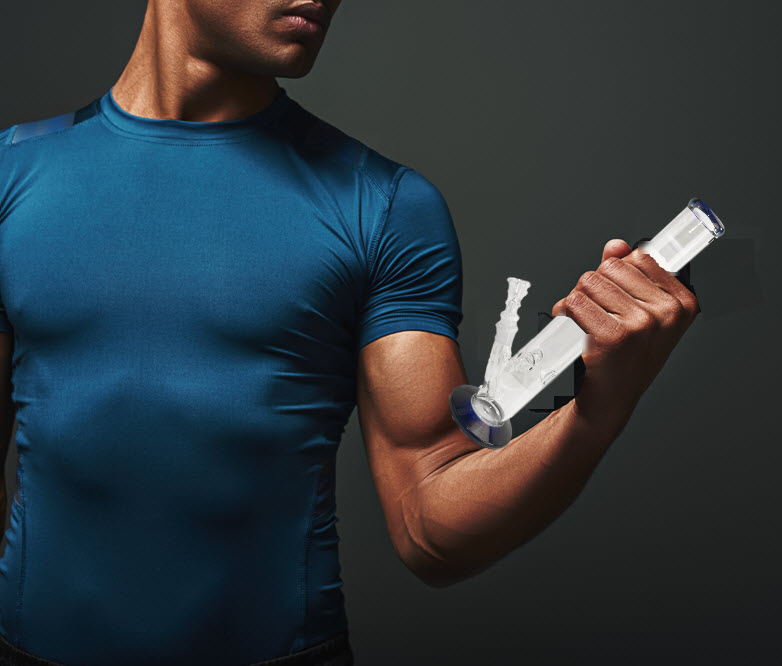
Nevada says cannabis doesn’t make you stronger or faster, it legalizes its use for MMA athletes
The discussion about allowing athletes to use marijuana has always been a controversial one, and that’s largely because most people think it is a performance enhancement drug. This belief makes it unreasonable for athletes to use it to gain an advantage over other athletes who do not rely on cannabis.
Now that the discussion has been fueled nationally and globally lately, the Nevada State Athletic Commission (NSAC) is changing its stance on athletes who use cannabis.
The vote to change position took place on Wednesday, with a majority of the commission’s members voting in favor of lifting the ban on marijuana users for athletes. This move paved the way for boxers and other athletes such as mixed martial arts to consume cannabis freely.
The role of the NSAC
This organization is the most notable regulator in the martial arts world. Their goal is to regulate high profile boxing events that span some of the most popular fan events. Some of these events include:
These are fights that attract a lot of people, fans and enthusiasts, which puts the athletes in the spotlight. The NSAC also joined the Florida State Boxing Commission in making the new decision that resulted in cannabis testing being suspended in May.
Other states like California and New York will continue to test fighters for marijuana, but with fewer penalties if the test is positive. The NSAC had previously suspended and fined fighters for up to nine months; However, the commission already had an unreliable history with marijuana.
In 2015, the commission also voted to suspend Nick Diaz, a UFC fighter, for five years after frequent positive drug tests for marijuana. Eventually, following an appeal, the suspension was reduced to one year and six months. So the NSAC is at the heart of athletes and their relationship with cannabis: they can either allow athletes to use cannabis or prohibit them from using it.
The NSAC’s new cannabis policy
This new policy is effective from the date of its announcement and is not retroactive in some cases where arbitration has not been conducted. This policy also means that two athletes caught using marijuana prior to the announcement will be suspended.
Two UFC fighters, Misha Cirkunov and Gillian Robertson, were fined and suspended for testing positive for cannabis. While Cirkunov was fined $ 4,145.36 and wasn’t able to return to the sport until August 10, Robertson was fined $ 3,145.36 and wasn’t able to resume until September 13.
The Commission has taken a tough stance on marijuana for many years. It banned cannabis in all competitions, affecting the career of the fighter who relied on marijuana to eliminate pain and its effects in training and combat.
Going forward, the NSAC has big plans to continue testing athletes for cannabis within the next six months for data. The Commission then decides whether or not to continue collecting the data. So if fighters use marijuana in training, they will not be punished.
The NSAC also recognizes that a positive marijuana test indicates that the athlete is drunk or has recently used cannabis. Since cannabis metabolites are fat-soluble, they can remain in the athlete’s body for days and even weeks after the first cannabis use.
Lifting the cannabis ban
The UFC also lifted its cannabis ban in January because Nevada sports officials had strict regulations and UFC fighters still had to pass the marijuana drug test.
USA Today’s Nolan King claims that Nevada fighters will be punished over time for using marijuana if their test results are “positive” on the night of the fight and after visual inspections.
One of the reasons for lifting the ban is based on the World Anti-Doping Agency (WADA) drug policy. WADA divides marijuana into three groups:
If you’ve paid attention to the sports world, you’ve probably heard of the Sha’Carri Richardson case, which has become a famous and topical example of how the rules shape sport.
Nolan King reported that NSCA executive director Bob Bennett said on a conference call that marijuana was “not just a performance-enhancing drug.”
The aim of the NSCA is now to test the athlete for performance-enhancing drugs in order to ensure a level playing field for athletes. Since it was agreed that cannabis is NOT a performance-enhancing drug, Bennett concludes that the commission should stop testing athletes for it.
Researchers in the world of cannabis toxicology and physiology also insist that there is insufficient evidence to classify marijuana as a performance enhancing drug or an abusive substance. More research is therefore needed and the Commission is committed to this.
Lifting the ban is an empowering move by the Nevada Commission, and this will give priority to other states. Before long, we will see the sports commissions of various states take such bold steps and proactively protect their athletes.
Some athletes rely on marijuana instead of just being labeled a “performance enhancing” drug for a variety of reasons. This is a dangerous term that the NSCA is gradually abolishing as cannabis is not a self- or performance-enhancing drug. Balance within the sports world with cannabis, which Nevada has achieved.
Bottom line
The marijuana industry is in a constantly evolving phase: many commissions and states are changing their previous rigid stance on cannabis. The state of Nevada has made some changes to its stance, setting the stage for a more open policy on cannabis and athletes.
Some of the states and commissions that are still very rigid about cannabis haven’t realized what the Nevada commission now believes, and it could be some time before things change. We are on the right side and are moving towards a world that cannabis has embraced in the sports world.
MMA AND MARIJUANA, READ MORE …

CAN MMA ATHLETES WIN THEIR FIGHT TO USE CANNABIS?
OR..

CAN MARIJUANA AND JIU-JITSU WORK TOGETHER FOR VICTORY?

Post a comment: